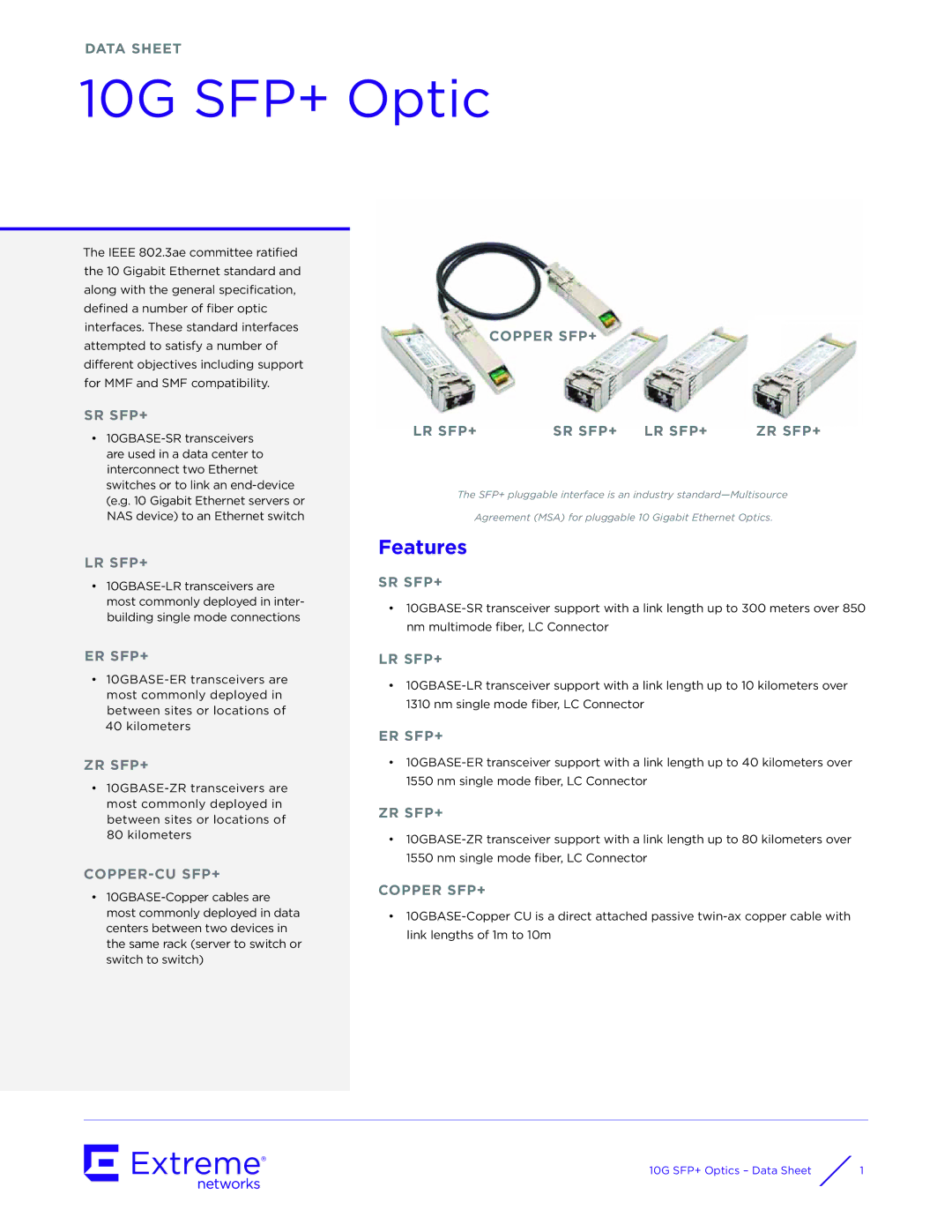The IEEE 802.3ae committee ratified the 10 Gigabit Ethernet standard and along with the general specification, defined a number of fiber optic interfaces. These standard interfaces attempted to satisfy a number of different objectives including support for MMF and SMF compatibility.
SR SFP+
•10GBASE-SR transceivers are used in a data center to interconnect two Ethernet switches or to link an end-device (e.g. 10 Gigabit Ethernet servers or NAS device) to an Ethernet switch
LR SFP+
•10GBASE-LR transceivers are most commonly deployed in inter- building single mode connections
ER SFP+
•10GBASE-ER transceivers are most commonly deployed in between sites or locations of 40 kilometers
ZR SFP+
•10GBASE-ZR transceivers are most commonly deployed in between sites or locations of 80 kilometers
COPPER-CU SFP+
•10GBASE-Copper cables are most commonly deployed in data centers between two devices in the same rack (server to switch or switch to switch)
COPPER SFP+
LR SFP+ | SR SFP+ LR SFP+ | ZR SFP+ |
The SFP+ pluggable interface is an industry standard—Multisource
Agreement (MSA) for pluggable 10 Gigabit Ethernet Optics.
Features
SR SFP+
•10GBASE-SR transceiver support with a link length up to 300 meters over 850 nm multimode fiber, LC Connector
LR SFP+
•10GBASE-LR transceiver support with a link length up to 10 kilometers over 1310 nm single mode fiber, LC Connector
ER SFP+
•10GBASE-ER transceiver support with a link length up to 40 kilometers over 1550 nm single mode fiber, LC Connector
ZR SFP+
•10GBASE-ZR transceiver support with a link length up to 80 kilometers over 1550 nm single mode fiber, LC Connector
COPPER SFP+
•10GBASE-Copper CU is a direct attached passive twin-ax copper cable with link lengths of 1m to 10m

![]() 1
1